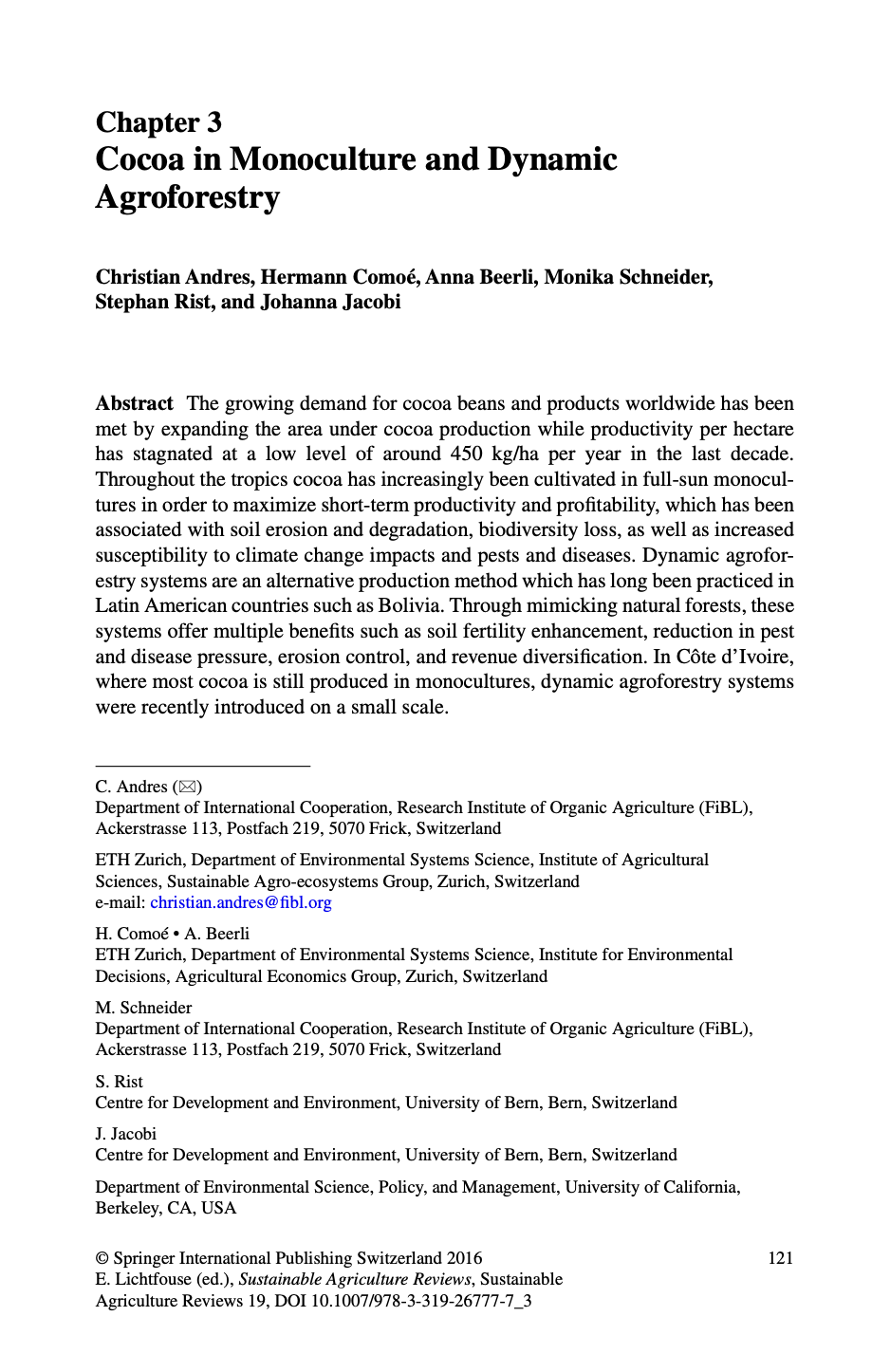
A recent study conducted in the Alto Beni region of Bolivia compared different cocoa cultivation systems to assess their impact on carbon stocks and tree diversity. Researchers examined cocoa monocultures, simple agroforestry systems, successional agroforestry systems, and fallow land as a control. The findings revealed that successional agroforestry systems had the highest carbon stocks and tree species diversity, significantly outperforming monoculture systems. Monoculture cocoa farms stored the least amount of carbon and had lower biodiversity.
Moreover, the study found that cocoa farms with organic certification and membership in farmers’ organizations had significantly higher tree species richness. This suggests that organic certification programs and cooperative efforts encourage farmers to adopt agroforestry practices, enhancing environmental sustainability.
For smallholder cocoa farmers, integrating agroforestry practices can lead to increased carbon sequestration and biodiversity on their farms. This not only contributes to global efforts against climate change but also improves soil health and provides additional income sources from timber and other tree products. The study highlights the importance of supporting farmers through organic certification and cooperative organizations to facilitate the transition from monoculture to more sustainable agroforestry systems.